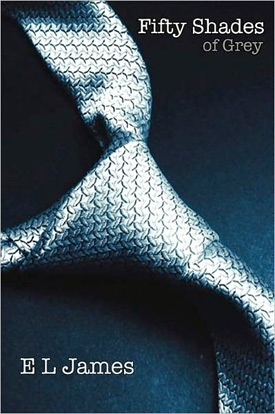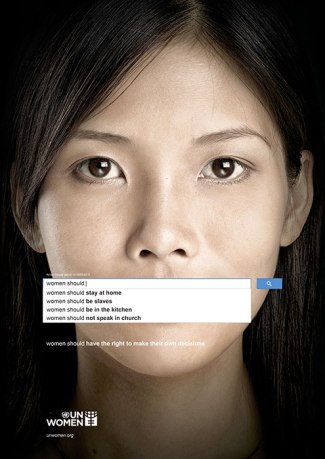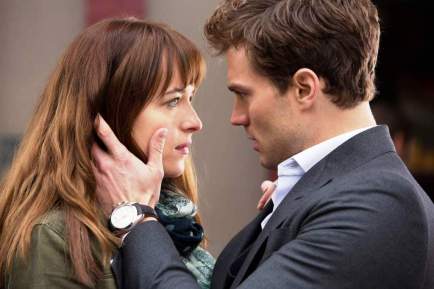 I really did try.
I really did try.
After years of hearing and reading complaints about E.L. James’s BDSM-erotica bestseller Fifty Shades of Grey – after having previously convinced myself I’d never read it – that the kinky subject matter didn’t interest me; that I didn’t want to join the global sales bandwagon; that I was too good for so-called “mommy porn” – I came to have a change of heart.
I started to think about the book’s monumental sales and wondered whether perhaps all the outcry against it was just some 100 million sour grapes.
I thought maybe it was the book’s origins as fan fiction (of Twilight no less – yet another maligned fiction franchise) that caused offence.
I thought maybe it was the sex – that in North America at least, our rather Puritan sensibilities had us all reacting with unnecessary moral aggrandizement.
In short, I thought I’d just read the damn thing and be done with it, the timing of which proved opportune indeed with the recent release of the companion work Grey and the even more recent #AskELJames Twitter-chat-turned-Twitter-brouhaha.
The fact that Fifty Shades began life as fan fiction was actually an inducement for me to read it, not a deterrent. For fan fiction holds a special little place in my heart: I wrote it in my youth; I wrote about it in this blog; I read it; I do volunteer work for one of the major fan fiction hosting websites, and while I don’t personally subscribe to every aspect of fan culture, I view it as a form of feminist alternative media with the power to redefine the creation and consumption of mainstream pop culture.
Even though 95% of it is written poorly.
If anything, the low literary quality of most fan fiction should have prepared me even more to like Fifty Shades, which itself was no fine masterpiece. It didn’t have to be a dealbreaker for me: if a story is interesting and well-thought-out – if an author can make me believe it, make me feel it – I can overlook considerable amounts of awkward prose.
I can’t, however, overlook troubling underlying messages about women, relationships, and society.
Normalizing abuse
I’m not even talking about the way the book romanticizes and glorifies domestic abuse, although to be sure that’s in there too, and much more overtly and unambiguously than I expected.
I was sure there’d be room for interpretation – that there’d be, no pun intended, shades of grey in how one could perceived what was happening. That in it being a work of erotica, perhaps the author simply delved a little too deeply for comfort into those dark corners of our psyche that we won’t admit to just anyone.
But no: Christian Grey just wanted to own and posses Ana and smack her ass when she didn’t do his bidding and get off on it at her expense as shown, in only a very small part, by him coming right out and saying so:
I like the control it gives me, Anastasia. I want you to behave in a particular way, and if you don’t, I shall punish you, and you will learn to behave the way I desire. I enjoy punishing you. (p. 287).
And again near the end on page 503:
I want to hurt you.
This in addition to the following facts:
- Ana didn’t like being spanked
- She didn’t actually consent to being spanked it until the last 10 or so pages of the book
- She told herself numerous times that Christian was bossy, intimidating, a stalker, and that he scared her
- She constantly tried to manage Christian’s moods – tiptoeing around his anger – and silently begging him not to be mad at her or distance himself emotionally
- She wanted to know more about him and his life but he refused to tell her, and
- Ana only went along with Christian’s BDSM lifestyle because a) he bribed her with the possibility of the genuine relationship that she wanted, and b) she was desperately afraid he’d dump her otherwise.
How romantic.
(And, recalling how a 22-year-old practicum student at my work who’d read the book before I did and claimed it’s “not that bad”, how alarming.)
But there’s even more negative messaging in the book than that. Simply put, it’s yet another chapter in the ongoing narrative to demonize women’s sexuality and hold them up to unrealistic standards of beauty and behaviour.
Not beholding beauty
It may not seem that way at first glance, being a book featuring BDSM and targeting a female audience. But then look at what James creates to be the heroine.
Anastasia Steele is routinely described as beautiful by her friends, her family, and of course Christian Grey, yet she seems unable or unwilling to recognize this fact in herself. This corresponds with the societal dictum that women should behave humbly (even if falsely) about their appearance and generally not try to use their attractiveness to their advantage, especially for the purpose of gaining power over men.
Ana complains in the book about being “too skinny”, which another example of this false humbleness. While legitimately underweight people do exist and are impacted by the condition in any number of ways, with few exceptions, North America women don’t suffer socially for being “too skinny”. Rather, they are expected to be thin (and to want to be thin, and if already slender, than thinner still), and are generally derided if they’re not.
(Also, if Ana was truly distressed about being “too skinny”, why the f*ck did she never want to eat?!)
I was also bothered by the fact that Ana starts the story as a virgin. There’s nothing wrong with being a virgin – at 21 like Ana or at any age – but essentially, until she meets Christian, Ana has no sexuality at all: she’s never been turned on by anyone or anything – not even so much as a celebrity crush – let alone ever pleasured herself. She doesn’t even seem to know how it would be done if she were minded to.
Ana isn’t presented as possessing strong religious or cultural restrictions against sexuality to explain this. Rather, E.L. James simply chose to make her as utterly inexperienced and ignorant of all matters sexual as a person can get, for no conceivable reason.
Save to reinforce certain mainstream views of what’s appropriate for women and their sexuality.
No sex for the wicked
Women’s sexuality has long been feared and controlled by patriarchal society. In the medieval times, as in many historical eras before and since, women were isolated from casual contact with men and were perceived in one of two comparative states: innocent and virtuous, like the Virgin Mary, or impure temptresses, like Mary Magdalene.
This virgin-whore dichotomy still exists today. One area it’s strongly evidenced is in some of the first questions a woman gets asked upon reporting sexual assault by a man (“What were you wearing?” “Did you lead him on?” “Why where you there in the first place?”).
Another is the efforts of some modern conservative governments to roll back the progress made on women’s rights to safe and effective birth control.
Much of the basis of rape culture in society derives from the idea that women are objects for use and consumption by men – that woman don’t get to own and enjoy their sexuality because it’s for men to dictate how women should conduct themselves in that regard, if at all.
As such, having Ana be a virgin who goes to participate in such a highly sexual storyline seems an attempt to remove her agency in having chosen to enter such a relationship to begin with (“Oh, she was a virgin – she had no idea what she was getting herself into.”)
It also seems to imply that only innocent (i.e. non-slutty) girls deserve a fulfilling sex life. As does her insistence that she loves Christian. The book only covers a period of about two months after Ana first meets Christian; that’s pretty fast to fall in love, especially when she’s constantly worrying about all the things I mentioned in the list above.
But having Ana love Christian is another way to help keep her sexuality in check: that means it wasn’t the sex and pleasure that motivated her; it was her feelings for him, the enjoyable sex just being a fortunate by-product of what he wanted from her.
(And don’t even get me started on how Ana’s belief that she can rescue Christian from his tortured darkness aligns with the historical notion that sex with virgins yields magical/medicinal powers – a notion that’s also been carried forward to the present among some quarters.)
It’s not me, it’s you
Everything that happened in Fifty Shades of Grey happened because Christian wanted it. I can scarcely count on one hand the number of independent decisions Ana made. As a character, she had no self-determination, next to no personality, and is barely a person at all outside of her relationship with Christian.
Not counting BDSM, we’re shown four of Christian’s hobbies (flying helicopters, flying glider planes, playing piano, and ballroom dancing), but the only thing Ana seems to do is read English lit (which she was studying in university, so I don’t really considerate that a hobby). Plus, we never actually see her reading a book.
All she seems to do is email Christian, have sex with Christian (the way he likes it), participate in his hobbies, and cry over him.
Is this a model for the ideal behaviour of a woman in a relationship? Is this even a genuinely female-focused erotic fantasy – one that’s unshaped by the pervasive influence of male-centric, male-dominated mainstream media?
Transforming the world

Ad from UN Women’s The Autocomplete Truth campaign, showcasing widespread societal beliefs about women that are accessed through Google searches in various countries
What I would’ve loved to see in this story is Ana portrayed much more like her roommate, Kate. Kate is outgoing, outspoken, she writes for the university newspaper, she seems to have an active social life since she’s rarely at home (unlike Ana), she’s dated and broken up with boys before, and she’s not afraid to own her beauty, buying a number of sexy bathing suits for an upcoming vacation and proudly modelling them for Ana.
If Kate had been the star of the story, its central conflict with her strong sexual attraction to Christian and his controlling, abusive personality, could have become something entirely different – a story of female empowerment, conflicting desires, choices, mistakes, and pleasure.
The story of a woman who knows what she wants in a relationship and is determined – even if she has to do battle with the very object of her affections himself – to get it.
I once read an article I can no longer find that discussed how fan fiction is the result of mainstream media’s refusal to reflect and cater to women’s tastes in a meaningful way.
Within my own experiences reading fanworks, I’ve encountered stories where existing characters are portrayed as LGBTQ; where males are gender-swapped female; where minor and minority characters are given major roles; where people freely engage in sexual relations for the sheer joy of it; where men have babies; where women play active, defining roles in relationships, and so much more.
Fan fiction is transformative, which in part means it’s an opportunity to transform our perception of modern society and play out scenarios and attitudes that differ from those we’re constantly fed via mainstream media and social conditioning.
To me, it thus seems a real waste that the biggest-selling book of all time – which corresponds to the most popular fan fiction story of all time – is one that brings nothing new to the way the world views women.
Did you read Fifty Shades of Grey? What did you think of it? Let me know in the comments.
(Image source #1, #2, and #3)


You pretty much said it all.
LikeLike
Unfortunately so.
LikeLike
Is it really crazy/paranoid of me to think the success of FSoG is some patriarchal conspiracy? I just don’t understand how it gained so much success otherwise.
LikeLike
Could you imagine? That would be downright cunning! But really, I just think it was a combination of women being just as interested in sex as men, the ability for women to read it discreetly on their Kindles or iPads, and the huge fan base E.L. James had already built up from the Twilight fandom helping to give it that initial push once it was acquired by traditional publishing.
LikeLike
True, but there are SO many romance and erotica novels that offer the same (if not more) sexy time and can be read discreetly. Many with confident, independent heroines. Better writing. An actual plot. Why FSoG hit the mainstream with such profound success … it’s beyond me.
LikeLike
I have not read it (shocker), but what I know of it seems antithetical to the message of feminism. The “people should be free to define feminism their own way” response is a cop-out in this instance, since you can’t define the empowerment of women as being the subjugation of women.
I’m surprised how many women I know who identify as feminists read this whole series and only came out with “it was poorly written” for a criticism. Is it some herd mentality at work? Everyone else read it so I have to as well. I’m not directly that toward women, just society in general.
LikeLike
Hype, combined with curiosity, seems to be a very powerful thing. I think you’re right. Herd mentality must be at work.
LikeLike
I hope I didn’t sound too harsh before. I certainly like my fair share of pop culture offerings.
LikeLike
I don’t think so. I obviously feel the book is worthy of more in-depth critique than just “poorly written”, but the inability of some to do so many be indicative of just how ingrained these negative perceptions of women truly are. I identify as a feminist as well, but I wouldn’t have been able to write most of this piece four years ago when the book first came out. I am always learning new things about feminist theory.
LikeLike
It worked on me too. When I heard that it had sold 100 million copies, I couldn’t not read it.
LikeLike
To me, the most un-feminist aspect wasn’t that Ana took on a submissive role (both in regards to BDSM and in general), but that she never truly consented to it. Rather, she felt manipulated into by Grey and helpless before his moods and mind-fuckery.
If there had been some manner of ah-ha at the end of the book – Ana realizing that Grey is a jackass; or her laying down the law about how their relationship was going to be; or even if, when she dumped him at the end, she didn’t wail in indescribable metaphysical pain (direct quote) “Oh, what have I done!” – the book could have totally made something of a comeback.
LikeLiked by 1 person